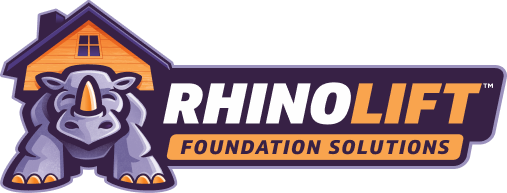Concrete lifting, also known as Slabjacking or Mudjacking, is a process that involves injecting a mixture of water, cement, and other materials under a concrete surface to lift it and level it out. This is done by drilling small holes into the concrete and injecting the mixture through them, which fills any voids and raises the concrete to its original position.
NEW CONCRETE SLAB OR CONCRETE REPAIR?
There are many benefits to concrete lifting. First and foremost, it is a cost-effective alternative to replacing your concrete surfaces. By lifting and leveling your existing concrete, you can avoid the expense and hassle of tearing out and replacing it entirely. Additionally, concrete lifting can be completed quickly, with most projects taking only a few hours or days to complete.
What to expect from the finished product
Concrete lifting can be used to address a wide range of issues with your concrete surfaces. It can help to repair cracks and gaps in your concrete, level out uneven surfaces, and address settling or sinking concrete slabs. This can help to prevent tripping hazards, improve the appearance of your property, and extend the life of your concrete surfaces.
At RhinoLift Foundation Solutions Foundations, we use state-of-the-art equipment and materials to ensure that your concrete lifting project is completed to the highest standards. Our team of experienced professionals will work with you to assess the condition of your concrete surfaces and develop a customized solution that meets your needs and budget.
How it works
- Assessment: The first step is to assess the condition of the concrete surface to determine if it’s a good candidate for lifting. We’ll examine the surface for cracks, gaps, and signs of settling or sinking.
- Drilling: Once the surface has been assessed, we’ll drill small holes into the concrete at strategic locations. The size and number of holes will depend on the size and weight of the slab.
- Injection: Next, we’ll force-inject a long-lasting and heavy-duty material through the holes and into the voids beneath the concrete. This mixture, which is sometimes called “slurry,” fills the voids and raises the concrete slab.
- Leveling: As the slurry is injected, the concrete slab will begin to rise. We’ll monitor the process to ensure that the slab is lifted evenly and doesn’t exceed its maximum elevation.
- Sealing: Once the slab has been lifted to the desired height, the holes will be sealed with a cement paste or epoxy. The surface will be allowed to dry and cure before it can be used again.
If you’re noticing cracks or unevenness in your concrete surfaces, it may be time to consider concrete lifting. This process can help to repair and restore your concrete surfaces, saving you time and money in the long run. We’re here to help you restore your concrete surfaces and protect your property for years to come. Call us for a free inspection.




